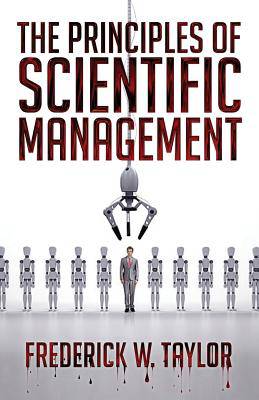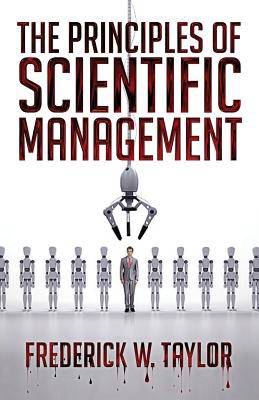
Bedankt voor het vertrouwen het afgelopen jaar! Om jou te bedanken bieden we GRATIS verzending (in België) aan op alles gedurende de hele maand januari.
- Afhalen na 1 uur in een winkel met voorraad
- In januari gratis thuislevering in België
- Ruim aanbod met 7 miljoen producten
Bedankt voor het vertrouwen het afgelopen jaar! Om jou te bedanken bieden we GRATIS verzending (in België) aan op alles gedurende de hele maand januari.
- Afhalen na 1 uur in een winkel met voorraad
- In januari gratis thuislevering in België
- Ruim aanbod met 7 miljoen producten
Zoeken
€ 12,95
+ 25 punten
Uitvoering
Omschrijving
Frederick Winslow Taylor was an early advocate for applying 'scientific' principles to the management of men, machines, and factories. Few realize, though, the the 'Efficiency Movement' that he helped foment extended well beyond the factory floor. 'Efficiency' clubs sprung up throughout the United States, and the movement found fertile soil elsewhere in the world, as well. These clubs sought to apply Taylor's ideas, referred to as "Taylorism," to a variety of human enterprises that one might not expect, such as schools, libraries, and governments. Indeed, 'efficiency' ascended to the level of a new moral virtue. Many modern institutions today are still imbued with the mindset that Taylor advocated. Another fact that is not well known: Taylor's philosophy was incorporated into the worldviews of people who would carry out some of history's worst atrocities. In the United States, the same men who advanced Taylorism advanced eugenics and compulsory sterilization. Germans lauded themselves for their efficiency. In Russia, the Bolsheviks envied the power and principles of organization that Taylorism brought them. Lenin himself was a fan. So it was that Taylorism was promoted both by wealthy industrialists and capitalists and leftist communists, and any and every person who elevated the interests of the 'system' over the individual, per Taylor's succinct moral dictum: "In the past the man has been first; in the future the system must be first."
Specificaties
Betrokkenen
- Auteur(s):
- Uitgeverij:
Inhoud
- Aantal bladzijden:
- 108
- Taal:
- Engels
Eigenschappen
- Productcode (EAN):
- 9781936830688
- Verschijningsdatum:
- 11/11/2014
- Uitvoering:
- Paperback
- Formaat:
- Trade paperback (VS)
- Afmetingen:
- 140 mm x 216 mm
- Gewicht:
- 136 g

Alleen bij Standaard Boekhandel
+ 25 punten op je klantenkaart van Standaard Boekhandel
Beoordelingen
We publiceren alleen reviews die voldoen aan de voorwaarden voor reviews. Bekijk onze voorwaarden voor reviews.









